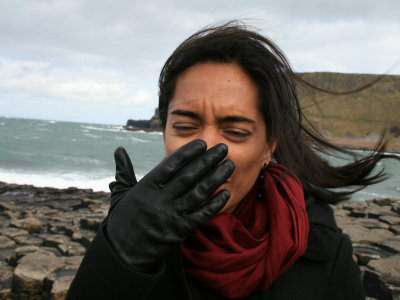Just one week of cold water baths could change your body at a cellular level and make you healthier

Some people practice 'cold baths' by deliberately soaking in cold water for health reasons, and even if you don't, you may have experienced a tightening sensation in your body after a sauna or other cold bath. A new study has revealed that simply taking a cold bath for about an hour a day for a week can cause positive changes in your body at the cellular level.
The Effect of 7‐Day Cold Water Acclimation on Autophagic and Apoptotic Responses in Young Males - King - 2025 - Advanced Biology - Wiley Online Library

Cold plunges actually change your cells, uOttawa study finds | Faculty of Health Sciences
https://www.uottawa.ca/faculty-health-sciences/news-all/cold-plunges-actually-change-your-cells-uottawa-study-finds
A Week of Swimming in Cold Water Can Change You on a Cellular Level : ScienceAlert
https://www.sciencealert.com/a-week-of-swimming-in-cold-water-can-change-you-on-a-cellular-level
When humans are exposed to the cold, they maintain their core body temperature at a nearly normal level through behavioral responses such as putting on clothes and moving to a warmer place, as well as physiological responses such as shivering and constricting blood vessels. Furthermore, when humans are forced into a situation where physiological responses are not enough to cope, such as immersion in cold water, cell damage can occur due to a slowdown in reaction speed, shrinkage of cell membranes, and protein denaturation.
When a certain threshold is exceeded, protective mechanisms are activated to prevent the cascade of damaged cell death ( apoptosis ). One particularly important cellular protective mechanism is a process called autophagy , which prevents the accumulation of abnormal proteins and breaks down damaged substances, and is said to be important for maintaining health and preventing aging.
Previous studies have shown that autophagy increases in mice and zebrafish exposed to cold air or water for tens of hours. However, it was unclear whether autophagy increases in humans exposed to low temperatures, such as in a cold water bath.
A research team from the University of Ottawa in Canada conducted an experiment in which 10 healthy men in their 20s took cold water baths for one hour per day for a week, and then analyzed the blood samples taken to examine the effects on autophagy and cellular stress.

When the subjects arrived at the lab, they changed into swimsuits and sat in a room at 23 degrees Celsius for about 30 minutes to stabilize their core body temperature. After that, they were immersed up to their shoulders in cold water at 13 to 15 degrees Celsius while their core body temperature was measured. After 60 minutes had passed or their core body temperature had dropped to 35.5 degrees Celsius, they were taken out of the cold water and immersed in hot water at 39 degrees Celsius to warm up their bodies. This experiment was continued for seven days.
The research team took blood samples from the subjects before and after cold water immersion on days 1, 4, and 7 of the experiment, and analyzed the samples for the expression of proteins related to autophagy, apoptosis, and inflammation.
The results showed that autophagy in the subjects' bodies was initially impaired after the cold water bath, but after one week of the experiment, autophagy activity increased and cell damage signals decreased, and signs of apoptosis and inflammation were also improved.
'We were surprised to see how quickly the body adapted,' said
Professor Glenn Kenny from the University of Ottawa, co-author of the paper, added: 'Our findings show that repeated exposure to cold significantly improves the function of an important cellular protective mechanism, autophagy. This improvement in function may enable cells to better cope with stress, which may have important implications for health and longevity.'

The study was conducted on a small number of people, 10 in all, all young men. In addition, the experiment was conducted indoors with strictly controlled temperature, and the air in the room was not as cold as it would be outdoors in winter, so the results may be different if the people taking the cold bath or the environment were different.
Related Posts:
in Science, Posted by log1h_ik







